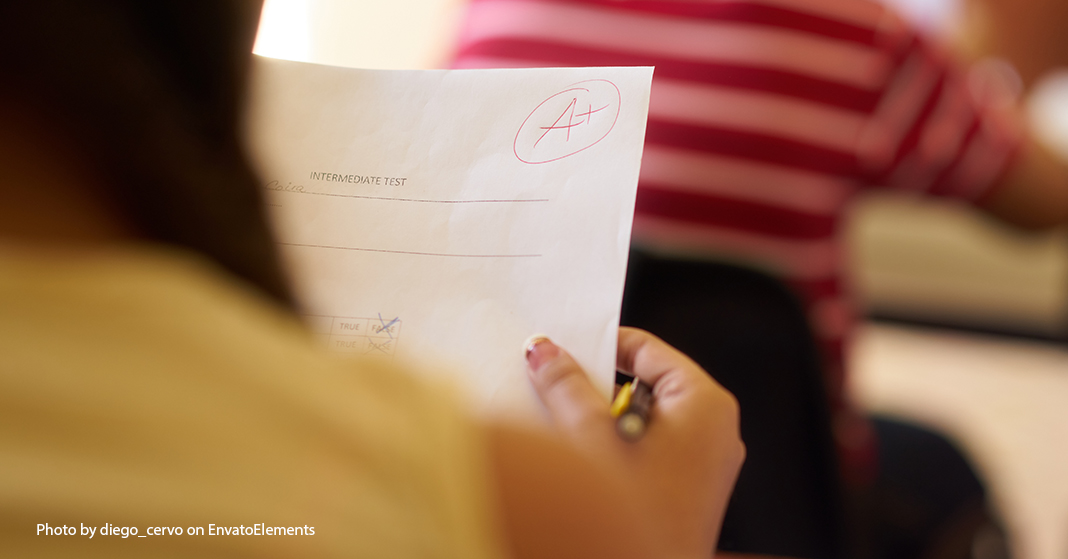
Adult life is full of assessments. An assessment is a judgment or evaluation. Whenever I interview for a job, the employer judges whether I have the right skills. Each year, my manager does a performance evaluation. Colleges and graduate schools expect a certain score on an entrance exam. Most schools use midterm and final exams to measure student learning over the course of a semester or year. Many students also participate in standardized testing each year.
As a homeschool parent, what is your measuring stick to gauge learning? How do you evaluate your child’s progress and adapt your teaching to maximize your effectiveness? Do you have a formal review of your child’s learning that has to be reported to your state?
An assessment is any task you assign intended to serve as evidence of learning. Exams or tests tend to have high stakes and cause stress. Teachers may be tempted to teach only what is on the test to improve student scores. You may have had bad experiences with testing that make you question its effectiveness, but assessments go beyond just the realm of testing. You’re likely already using some of them in your homeschool. Assessments can help you evaluate your child’s progress and improve your homeschool instruction.
Pre-assessments
Pre-assessments are diagnostic. They show you what your child knows about a topic or prerequisite topics before the lesson. You could conduct a pre-assessment just by asking questions verbally. Pre-assessments allow you to prepare custom lesson plans based on your child’s strengths and weaknesses in the subject. Pre-assessments aren’t meant to be graded.
For example, when I was in elementary school, every Monday, Wednesday, and Friday we had a spelling quiz. Monday’s quiz would be the pre-assessment. It would reveal how many words the students can spell correctly before learning the week’s spelling rules and reveal which words you need to focus on during a lesson. If your child gets all the words correct, you might pay attention to which words took longer to spell to find the gaps in knowledge. In math, you may see how students approach a problem they have not seen before and assess whether they are able to apply prior knowledge to a new problem.
Formative Assessments
Formative assessments are like a check-up in the middle of a unit. They help you gauge how learning is coming along. Has your child made progress toward the learning goals? They are sometimes graded, like homework and quizzes but can also be open-ended. Ask your child his favorite part of the lesson and why it is his favorite. You should expect an age-appropriate response that includes some key facts. Role-playing real people—or characters from literature—gives children a chance to actively show their knowledge. Reviews reveal ways for both you and your child to improve. You can customize instruction before the end of the unit so that your child succeeds. Change course, if you need to, and create the most conducive learning environment.
Summative Assessments
Summative assessments come after a unit has been completed. They are designed to assess the summary, or cumulative, learning that a child has accomplished. You must decide whether the child accomplished the key learning goals. You could use a test, or some other evaluation, or you might even assign a large project that integrates several subjects. For an artistic twist, creating models or writing songs about what they have learned would be great projects. If you write tests after you teach the material, you cannot merely teach to the test. Essay questions are a great way to incorporate writing into any subject. Writing about a subject in her own words reveals your child’s depth of knowledge.
Summative test-taking is a learned skill. The more opportunities your child has to practice different types of questions, the better he will get at this skill. Standardized tests, whether annual or for college admission, will be less stressful with previous exposure.
Getting the Most out of Them
Since evaluations are a part of life, it is great to give children practice through a low-stress approach. Using all three types of assessments in your instruction gives your children opportunities to perform with less pressure than taking tests. You might revise your instruction strategy if needed. You might include all these assessments in a portfolio as examples of your child’s work. With many examples of success, you can be sure you are providing the best education for your children.
• • • • •
Valerie is a wife and a mother to a very busy toddler. In her free time she enjoys reading all kinds of books. She earned a B.S. in Biology from Bob Jones University, minoring in Mathematics, and a Ph.D. in Molecular Genetics from Ohio State University. Valerie has 15 years of experience working in research laboratories and has coauthored 8 original research articles. She has also taught several classes and laboratories at the high school and college levels. She currently works as a Data Analyst and a freelance writer.
You can reach out to customer service at 1-800-845-5731